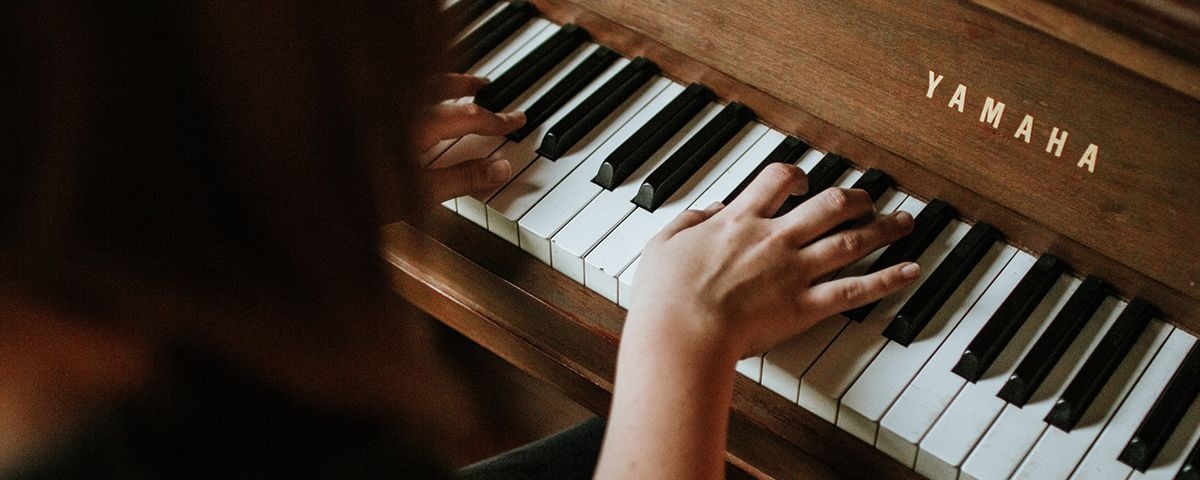Used / Second-hand Pianos
No matter what brand of piano you are looking to buy second-hand, it’s important to understand how factors such as usage, age, climate, servicing history and wood seasoning can have an effect on the instrument.
Generally speaking, pianos do not improve with age. The complexity of the mechanism and high string tension on the soundboard mean the first 25 years of a piano’s life are its best.
Pianos contain a complicated mechanism with thousands of moving parts which are all subject to wear over time. A piano that has been used professionally by a music teacher or a school will have substantially more wear compared to a piano played casually in a home.
Pianos require regular servicing beyond just tuning the strings. Regular adjustments to the mechanism and hammers are required to keep the instrument functioning and maintain a proper touch and tone. If a piano has not been properly serviced it may require extra work by a piano technician to return it to an acceptable level.
Frequently Asked Questions
What benefits are there in buying brand-new?
- All new Yamaha Pianos, purchased through an authorised Yamaha Piano retailer are eligible for Yamaha Piano Care, a program that offers additional benefits (tuning and servicing on eligible models) after purchase.
- All new Yamaha Pianos, purchased through an authorised Yamaha Piano retailer are covered under a 10-year manufacturer’s warranty. All electrical components on hybrid instruments (Silent Piano, TransAcoustic Piano and Disklavier systems) are covered under a 5-year manufacturer’s warranty.
- Wooden components are ‘seasoned’ for an Australian climate to ensure stability throughout the lifespan of the piano.
- Greater availability of genuine Yamaha parts when compared to overseas models.
Should I get a second-hand piano inspected before purchase?
When buying a second-hand piano, it is highly recommended you employ the services of a qualified piano technician who can perform a pre-purchase inspection. Engaging in a pre-purchase inspection will help identify any potential problems not immediately obvious to the untrained eye.
You can find your nearest Yamaha Authorised Service Agent using our service locator.
Do I need to consider where the second-hand piano has been stored?
It is very important to consider the climate in which a piano has been stored. If a piano has been subjected to extended periods of high humidity there is a risk that the metallic components such as strings, key pins and tunings pins will be corroded. There is no way to repair corrosion damage and these components are expensive to replace. Conversely, if a piano has been subjected to extended periods of low humidity there is a risk that the wooden components such as the soundboard, bridge and pin block will have shrunk and cracked. This can also be very expensive to repair, particularly on older instruments with less available parts.
Do Pianos improve with age?
Generally speaking, pianos do not improve with age. The complexity of the mechanism and high string tension on the soundboard mean the first 25 years of a piano’s life are its best.
Were pianos built 30-40 years ago better than pianos built today?
After more than a century and over 8 million pianos, Yamaha has earned a reputation for tone, beauty, craftsmanship and quality the world over.
Yamaha Corporation have never stopped researching and developing techniques to improve their pianos. They make several hundred "test" pianos per year. The pianos Yamaha build today are superior to those built even twenty years ago.
If history is any indication, the best is yet to come.
Are Yamaha Piano’s built for the Australian climate?
New Yamaha pianos are seasoned for the Australian climate which, on average, is drier than overseas markets such as Singapore and Japan. This ensures the wooden components are stable throughout the lifespan of the instrument.
Most second-hand Yamaha pianos being brought into Australia today are pianos that were manufactured for the Japanese market. These used pianos have lived in a more humid environment and may develop issues when being introduced to a drier climate.
Yamaha manufactures pianos in many countries other than Japan. Are these pianos just as superior?
Yamaha Corporation Japan currently manufactures pianos in Japan, China and Indonesia. The Kakegawa Factory in Japan acts as the epicentre for all research, development and quality control, overseeing the production of all components, and provides technical support for assembly of these pianos.
Established in 1981, Yamaha Indonesia builds pianos to the same high standards for which all Yamaha instruments are renowned. Using Yamaha training, tools and techniques, this advanced, modern production base has earned the coveted ISO9002 certification for superior quality control.
Yamaha Indonesia pianos are designed and developed at the Yamaha Kakegawa Factory in Japan, drawing on over 100 years of accumulated Yamaha expertise. Many of the major parts are produced in Japan (including vacuum-cast V-Pro iron frames, copper wound strings for superb bass tones, and lathe-cut nickel-plated tuning pins) and then assembled at Yamaha Indonesia.
Additional parts are produced for the pianos assembled at Yamaha's ISO 9002-certified facilities in Indonesia. Here, components from other Yamaha production facilities are combined with Indonesian made structural and cabinetry elements, and transformed into finely finished Yamaha pianos. Tuning, regulation, voicing and inspection are performed by expert technicians, skilfully trained at Yamaha Japan, to ensure that the tone, touch and overall quality of these instruments meets Yamaha's worldwide standards.







